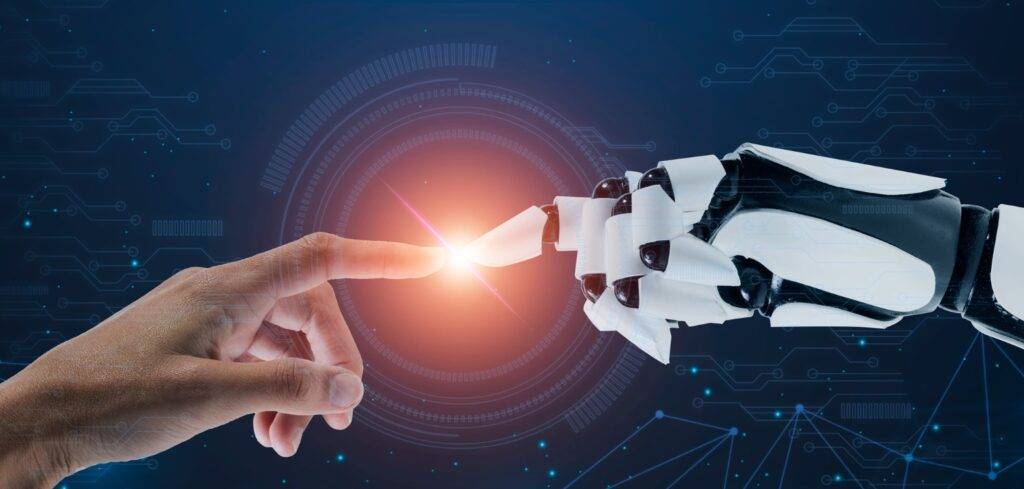In the relentless pursuit of technological advancement, artificial intelligence (AI) stands at the forefront, poised to catalyze a profound transformation in global productivity. As we peer into the future, insights from projections and trends indicate that the widespread deployment of AI technologies could usher in an era of unprecedented efficiency and innovation across diverse sectors, redefining the very fabric of our economies and societies.

The Rise of AI: A Catalyst for Transformation
The landscape of AI has evolved from a conceptual buzzword to a tangible force driving change across various industries. Projections for 2024 and beyond underscore the pervasive influence of AI, with the technology being positioned as a key catalyst for transformative shifts. It is no longer a question of whether AI will impact global productivity but rather how profound and far-reaching that impact will be.
The advent of machine learning algorithms and automation systems is central to the transformative potential of AI. These technologies have the capacity to revolutionize routine tasks, liberating human resources to focus on more complex and creative endeavors. Consequently, the optimization of processes through AI not only enhances efficiency but also serves as a precursor to unprecedented levels of productivity across industries.
Boosting Efficiency and Streamlining Processes
At the heart of AI’s potential lies its ability to streamline processes, unlocking new levels of efficiency previously deemed unattainable. In manufacturing, for instance, AI-driven automation can lead to more agile production lines, minimizing downtime and waste. Similarly, in the service industry, chatbots powered by natural language processing algorithms can enhance customer interactions, reducing response times and improving overall satisfaction.
Moreover, AI’s capacity to analyze vast datasets in real-time enables businesses to make data-driven decisions swiftly and accurately. This, in turn, empowers organizations to adapt to market dynamics with agility, ensuring a competitive edge in an ever-evolving landscape. The efficiency gains resulting from the integration of AI into various operational facets have the potential to redefine the benchmarks of productivity across industries.
Economic Implications: Job Displacement vs. Job Creation
The prospect of job displacement due to automation has been a topic of concern as AI technologies continue to advance. However, historical precedent suggests that technological advancements often create new opportunities and industries, mitigating the potential negative impact on employment.
In the context of AI, projections for 2024 indicate a nuanced scenario. While certain routine tasks may witness automation, leading to job displacement in specific sectors, the overall trend suggests the creation of novel job roles. Opportunities are expected to burgeon in areas related to AI development, maintenance, and ethical oversight. This necessitates a proactive approach in workforce upskilling and retraining to align with the evolving demands of the job market.
Moreover, the collaborative efforts between humans and AI can unlock unprecedented levels of productivity. AI technologies augment human capabilities, enabling individuals to focus on tasks that require creativity, emotional intelligence, and critical thinking—skills that remain distinctly human and irreplaceable by machines.
Global Collaboration and Ethical Considerations
As the deployment of AI becomes more pervasive on a global scale, fostering collaboration between nations, businesses, and regulatory bodies becomes imperative. The interconnected nature of the global economy demands a unified approach to harnessing the benefits of AI while addressing potential challenges.
Ethical considerations loom large on the horizon. Responsible AI deployment requires the establishment of robust guidelines and frameworks that govern its use. Striking a delicate balance between innovation and ethical standards is paramount. This involves addressing concerns related to bias in algorithms, data privacy, and the potential misuse of AI technologies. As the international community grapples with these challenges, establishing a foundation of ethical AI practices will be crucial in ensuring the responsible and sustainable integration of AI into various facets of society.
Conclusion: Embracing the AI-Powered Future
In conclusion, the projections for 2024 and beyond present a compelling narrative of a world fundamentally altered by the widespread deployment of AI. The challenges and ethical considerations notwithstanding, the potential benefits in terms of enhanced productivity, innovation, and societal progress are vast.
Embracing this AI-powered future requires a proactive and collaborative approach. Global collaboration is essential to navigating the intricate complexities of AI integration, ensuring that the benefits are shared equitably across nations and industries. At the same time, prioritizing ethical standards and responsible AI practices is non-negotiable.
As we stand on the precipice of this technological revolution, the key lies in harnessing the potential of AI to uplift societies, economies, and the overall well-being of humanity. By fostering a symbiotic relationship between humans and AI, we can chart a course toward a future where innovation flourishes, productivity soars, and the transformative power of AI is harnessed for the greater good.

